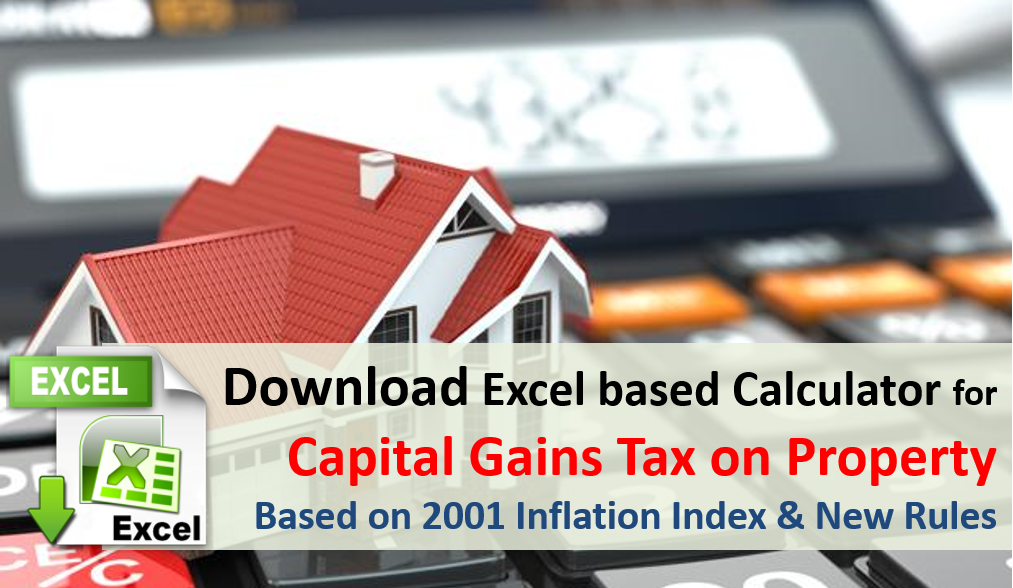We have compiled an Excel based Capital gains calculator for Property based on new 2001 series CII (Cost Inflation Index). It calculates both Long Term and Short Term capital gains and associated taxes. You need to feed your property sale & purchase date along with values. There is option to include cost of repairs/improvement that you might have incurred during the holding period.
Before you start using the calculator here are some things you must know:
Short Term Vs Long Term Capital Gains:
If the property is sold after 2 years (changed in Budget 2017 and applicable from April 1, 2017) of purchase the corresponding gains or losses is called LONG Term Capital Gains (or Loss). If sold within 2 years its SHORT Term Capital gains (or loss).
Long Term capital gains from property is taxed at flat rate of 20% after taking indexation in account. There is education cess of 3% effectively taking tax to 20.6%. After April 1, 2018 the cess would increase to 4% taking the effective tax to 20.8%.
Short Term Capital Gains from property is added to income and taxed at your income tax slab rates.
How to Calculate Capital Gains?
1. Take Full value of consideration (sale price)
2. Subtract the following from above:
- Purchase cost
- Any cost related to purchase of property like stamp duty, registration cost, brokerage, traveling cost related to purchase, etc
- Cost of major repairs, improvement or renovation during the holding life of the property
- In case of inherited property you can consider cost related to inheritance paper work.
3. The resultant amount is Capital Gains.
For long term capital gains all the deductions are indexed using CII (Cost Inflation Index) published annually by Government of India.
Also Read: 25 Tax Free Incomes & Investments in India

Download Capital Gains Calculator for Property
Some Points:
1. In case the property has been purchased before April 2001, you will need to get its fair valuation done by income tax approved valuers as of April 2001. This is because new revised CII for indexation started getting published taking FY 2001-02 as base with value of 100.
2. Cost on improvements made before April 1, 2001 cannot be considered as that should be included in the value of property calculated as of April 1, 2001.
3. To calculated capital gains for inherited property, the purchase cost and time of the original buyer is taken into consideration.
Also Read: How are your Investments Taxed?
Download Calculator:
Download the excel based Capital gains calculator for Property from the link below:
Download Capital Gains Calculator for Property (57.19 KB)
Save Capital Gains Tax:
There are two ways you can save Long Term Capital Gains from sale of property.
- Reinvest the amount to buy one new residential property (NO land or commercial property) in India within 2 years of selling or construct a house within 3 years. If you already have bought a house within 1 year before selling the property you get tax exemption.
- Invest in REC, NHAI, NABARD & PFC Capital Gains Bond up to Rs 50 Lakhs under Section 54EC. The bonds mature in 5 years and offer interest of 5.25% payable annually. The interest received is fully taxable.
Also Read: How to Save Long Term Capital Gains Tax from Property?
In case you are not able to invest full capital gains as above, you will get tax exemption only on invested amount. The remaining amount would be taxed as per rules.
The sale proceeds should be deposited in Capital Gains Account scheme with banks if the gains have not been utilized for buying property or bonds before filing income tax returns. We will do a detailed post on – How to save capital gains on property soon.
Leave a Reply